Though climbing the Kilimanjaro is quite the feat, the true heroes are those making possible the entire expedition: the guides, cook, and porters. The team that assists you on your way to the top.
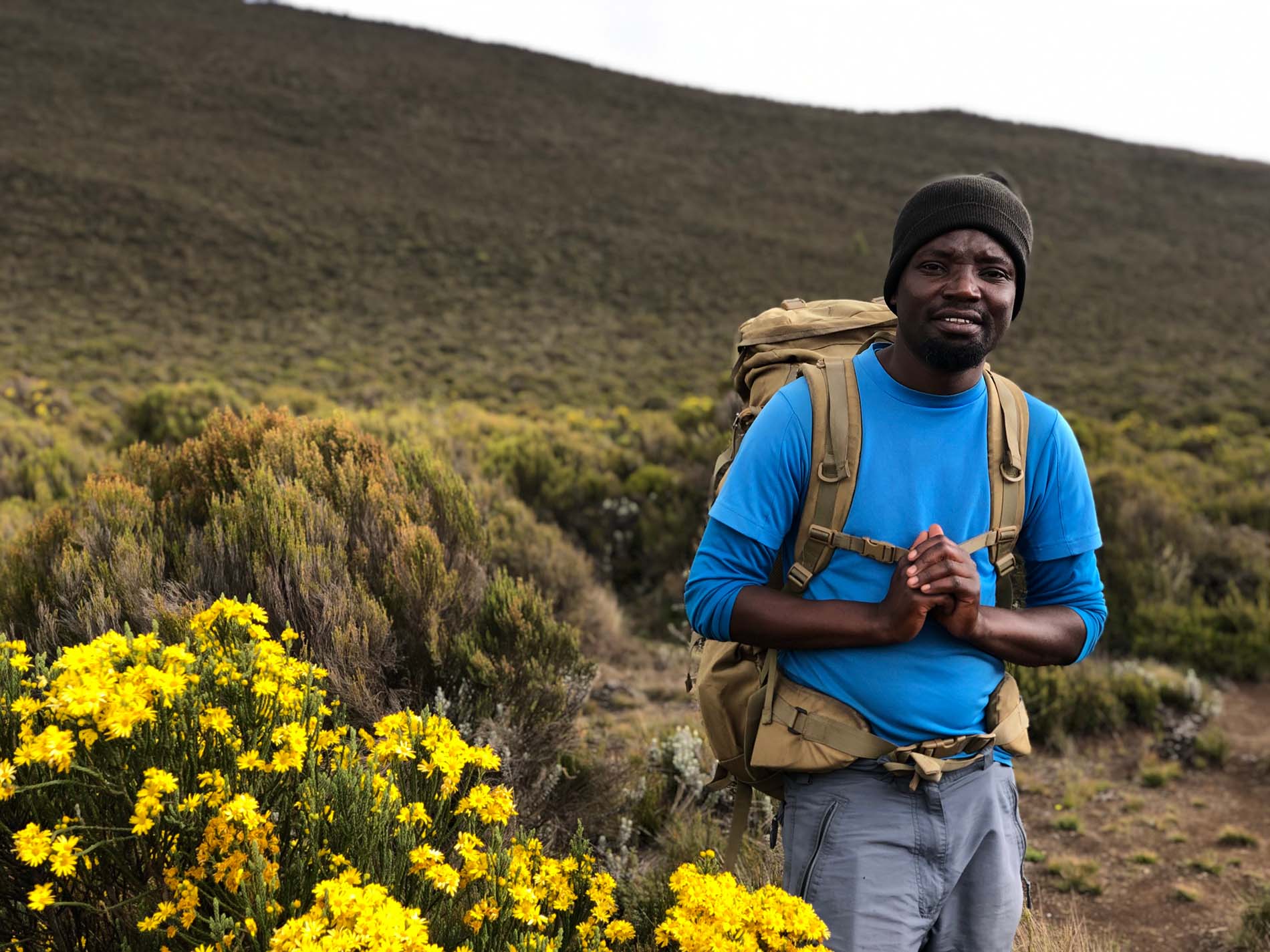
You may never have thought about it as a tourist, but each climb is studded by an entire team that makes it possible. A guide and assistant guide to accompany you. The cook who prepares meals. A waiter and porter to see to any of your wishes and, in our case, seven more porters to haul all luggage, tents, and supplies up the mountain. A sign of appreciation is justified, because it is hard work. The alarm goes off early in the morning and it is physically demanding work.
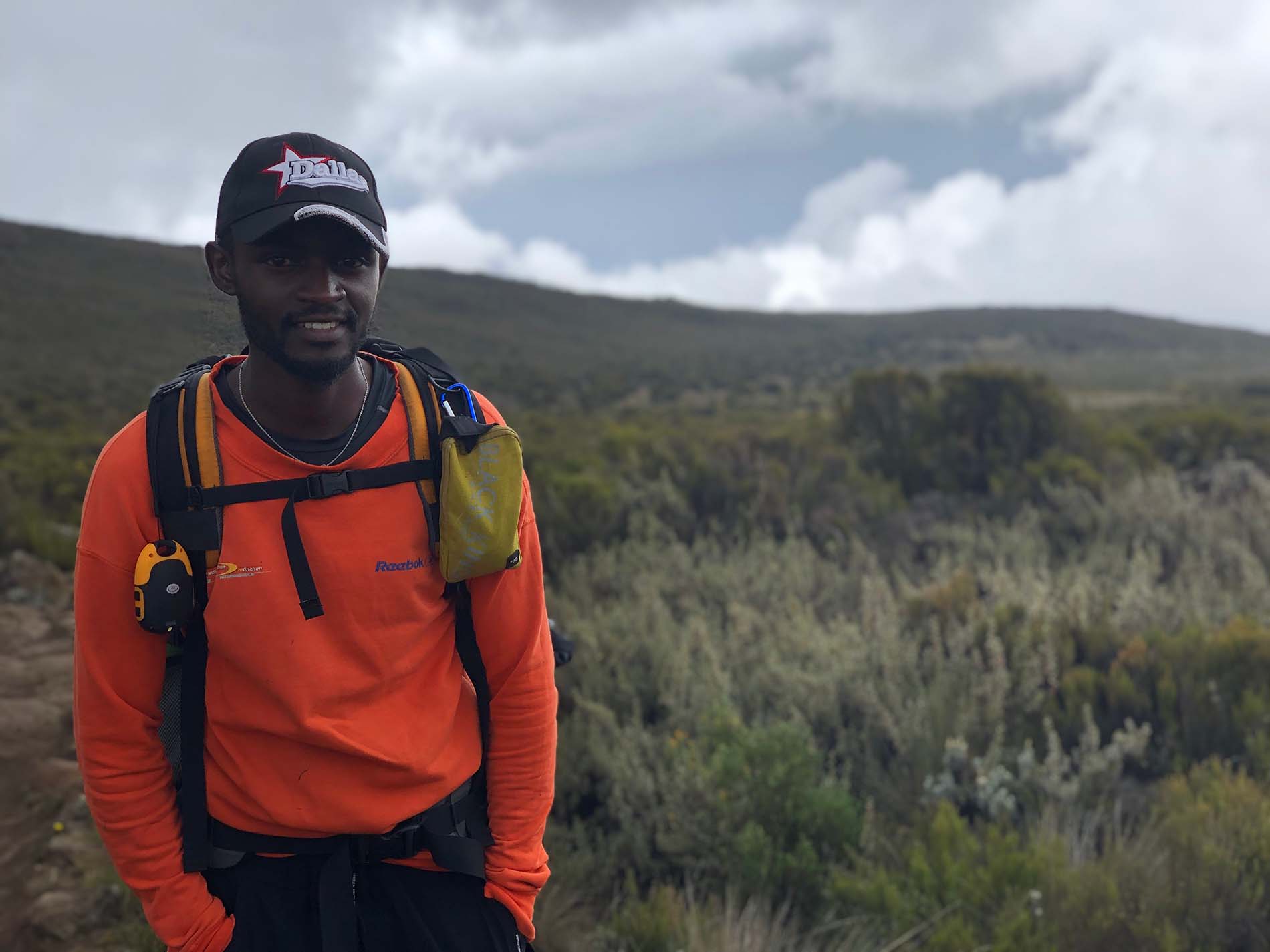
Take Baraka, our waiter/porter, for example. He carries a gigantic gas cylinder up the slope, is the first one to wake us up, brings us tea while we’re still in bed, and water to wash with; as well as lunch and dinner. This means he scrambles all day to make your stay more pleasant.
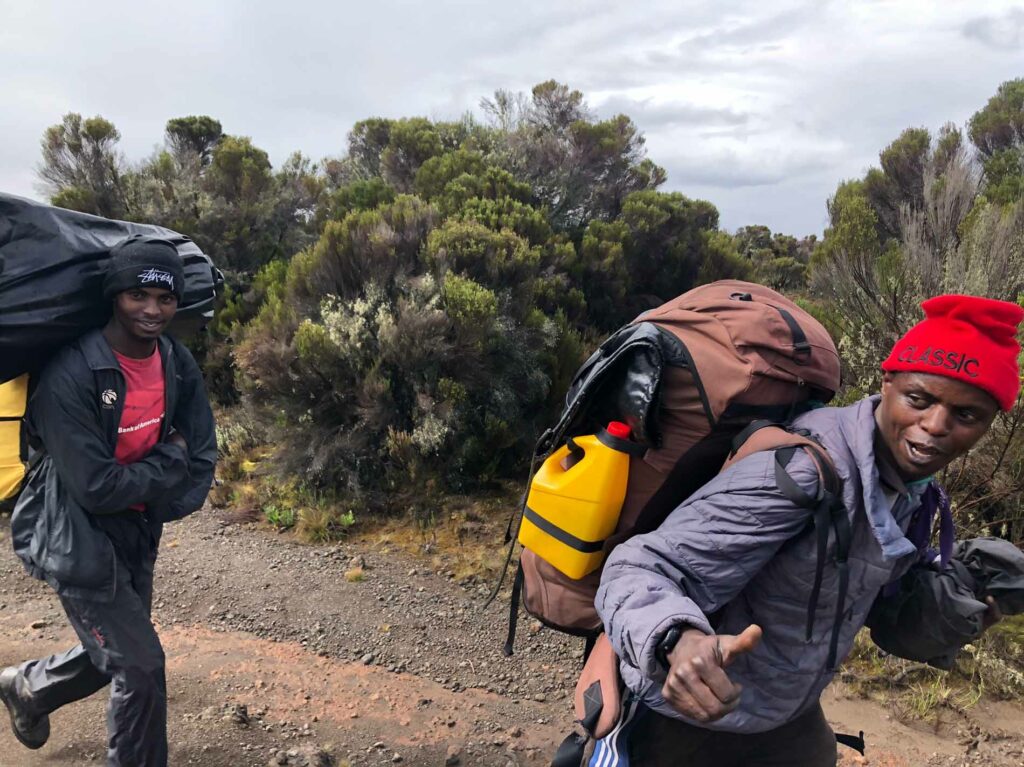
Or the good-humored Hassan, with his impressive physique. He’s always ready to carry your bag or to help you along, seems unperturbed when carrying 40 pounds on top of his head, and at least 40 pounds on his back as we climb up the mountain. It’s the same for all porters, for that matter. It is they who make sure that your tent is set up, even before you get there, and is disassembled later on – even if it’s just for lunch. They all carry all the tents, luggage, and supplies up the Kilimanjaro – and do so smiling and talking at an astonishing pace.
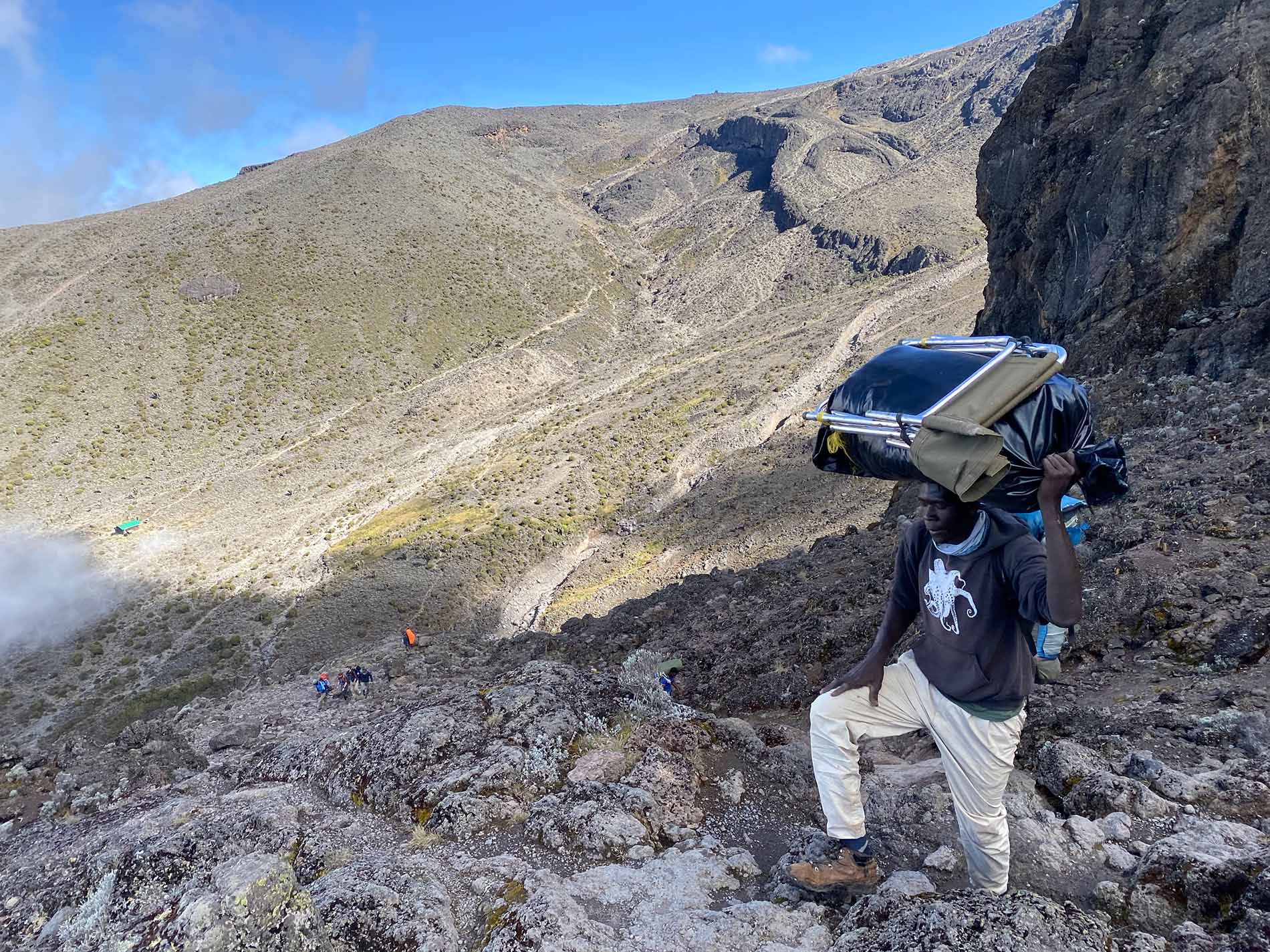
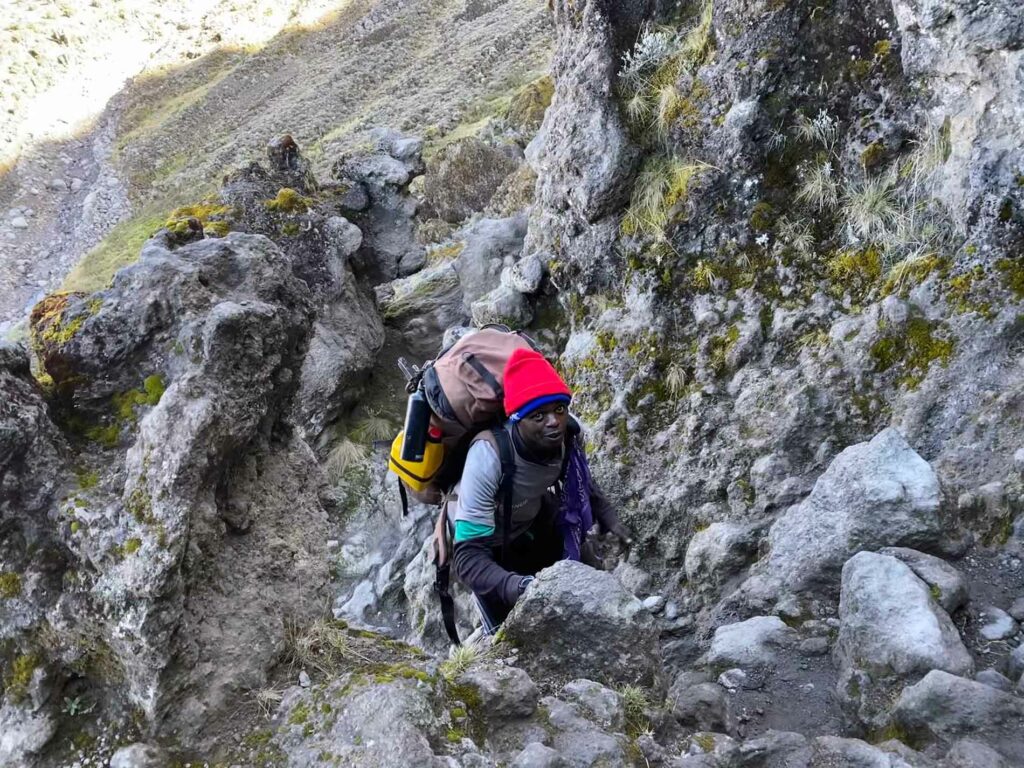
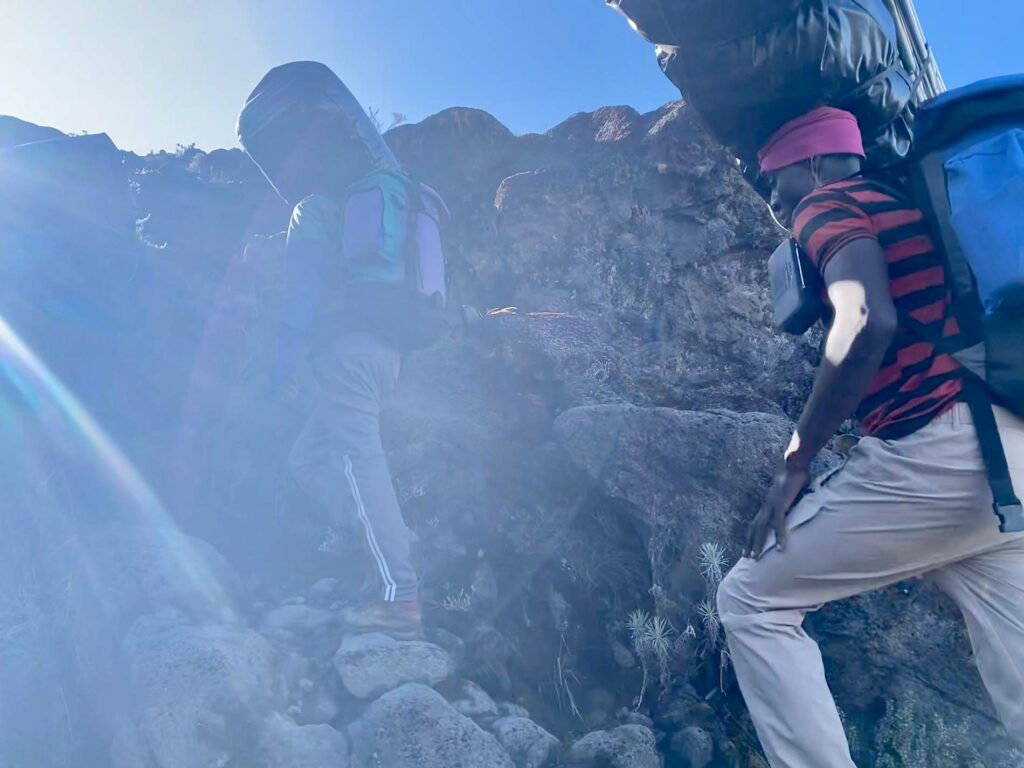
Our cook, Mr. Delicious, brings honor to his nickname and knows how to prepare astonishing three-course meals on a single flame. Twice a day. We are served with the greatest dishes for lunch and dinner every time. Even pizza is included on his menu.
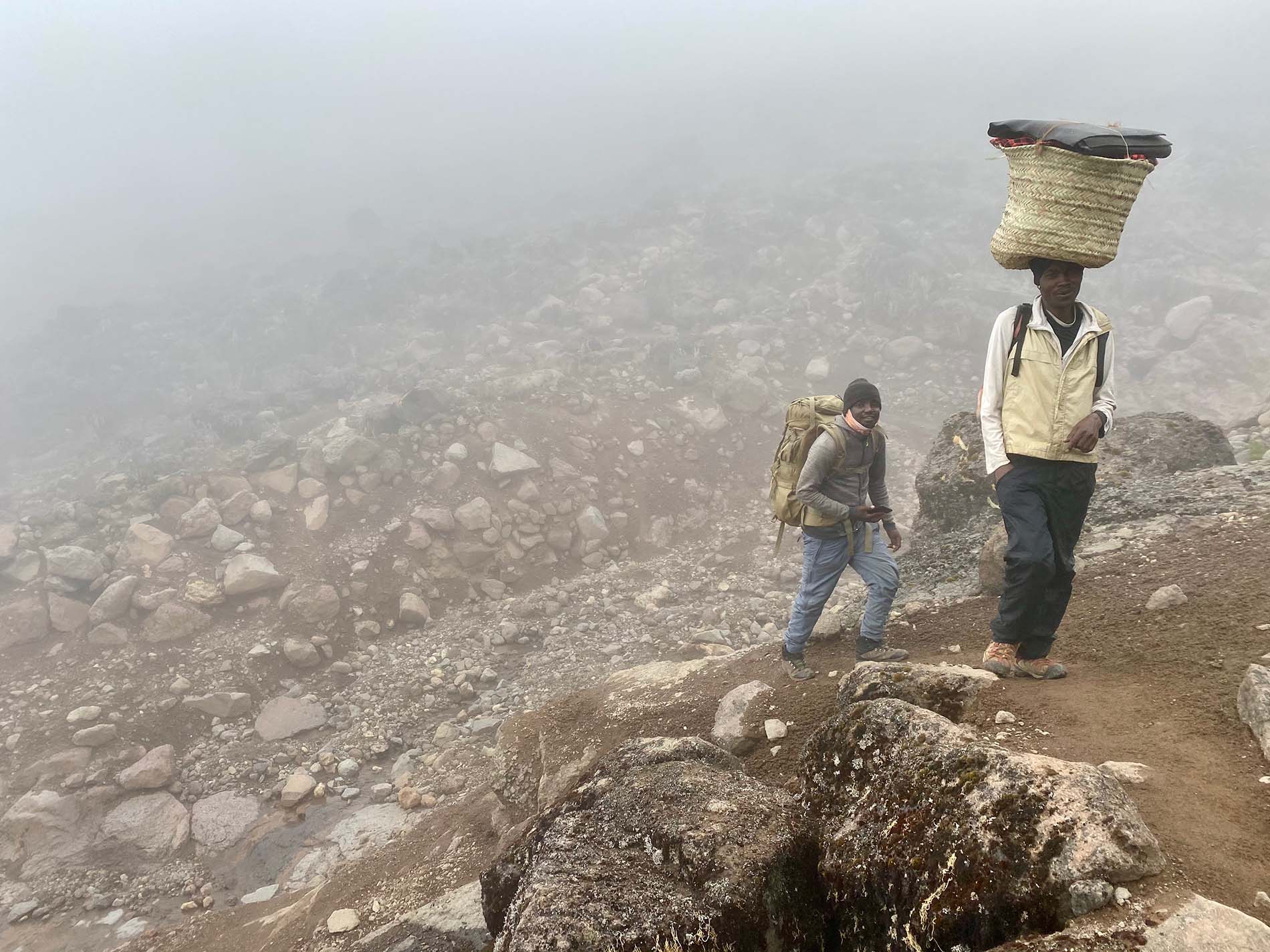
Then we have our guides: Immanuel and Davis. While a part of the team stays in bed during the Summit Night (the night when you try to reach the summit, editor), their alarm clock rings at midnight, too. We would never have reached the top without them, because yours truly thought the view was pretty enough half way as well. It was their words of encouragement and supportive hands that transformed the trip into a success. In high season, they climb the mountain as often as three times a month.
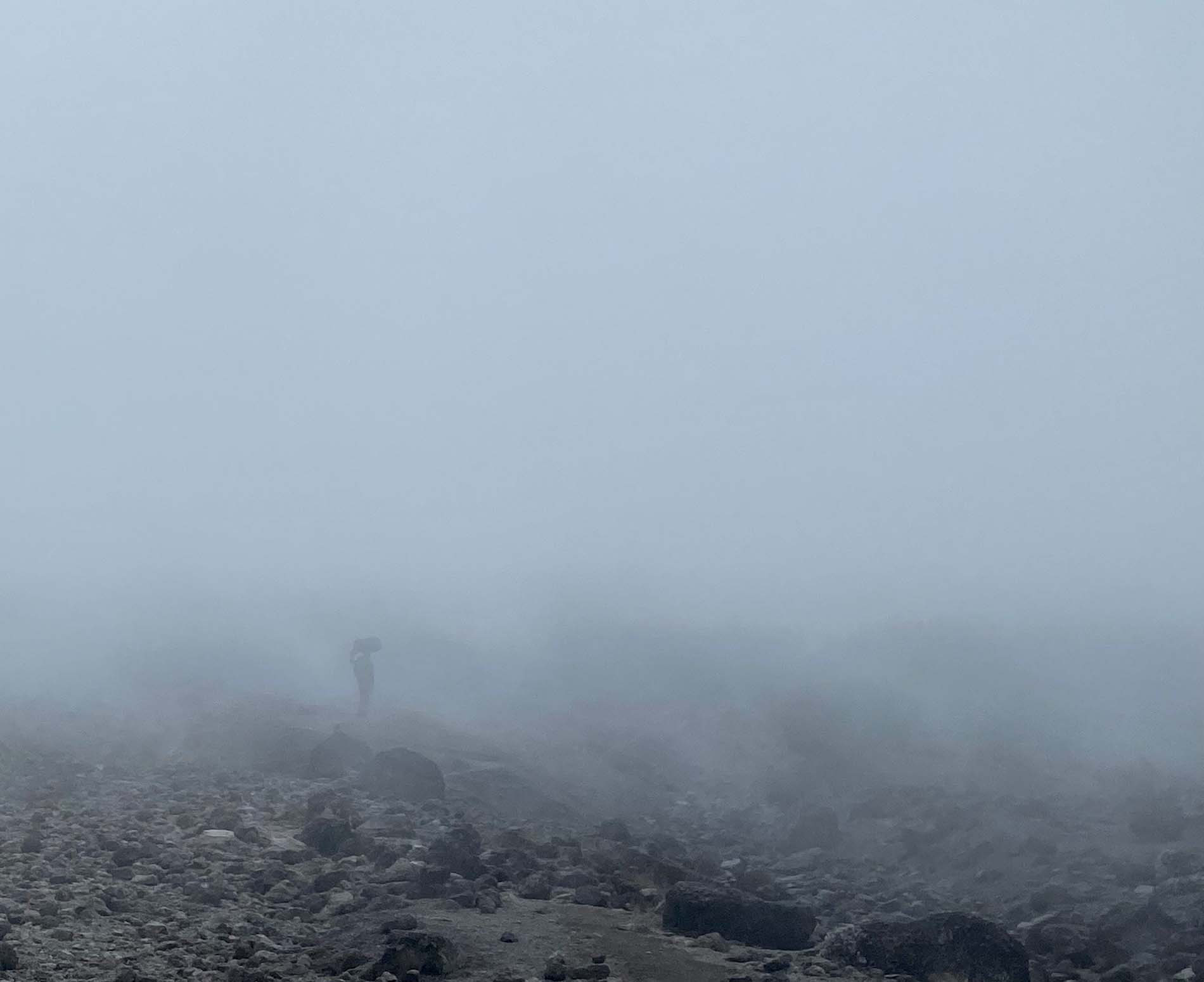
Though climbing the Kilimanjaro is a costly affair, a nice tip is an essential token of appreciation. The Kilimanjaro Porter Association and the guide promote the interests of the respective professions – wages used to be way lower before – but the job is anything but a treasure trove. Most porters earn only 10 dollars a day, for guides the amount varies from twenty to thirty dollars. This forces most to run an enterprise besides their work in the mountains. This way, they can provide for their livelihood during the low season, when tourists stay away, as well. It is all the more admirable to see the joy and enthusiasm they manifest while doing their job.
Tipping
Are you going to climb the Kilimanjaro? These are the guidelines for the tips per employee on the expedition. The tip is usually paid per group. Feel free to generously exceed those guidelines:
- 20 USD per day per guide;
- 15 USD per day per assistent guide;
- 12 USD per day for the chef;
- 10 USD per day for the waiter;
- 7 USD per day per porter.
Read: Can you climb the Kilimanjaro without training? We gave it a try.

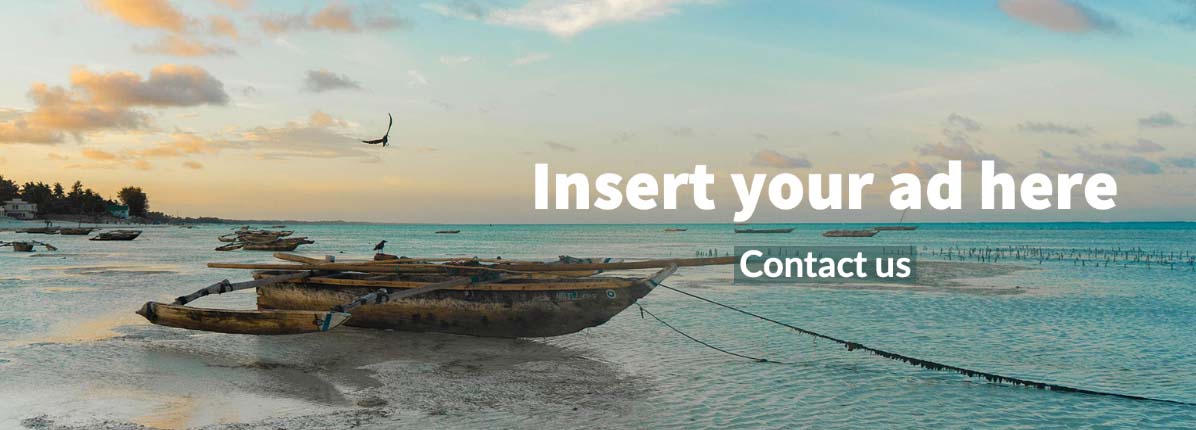
Recent Comments